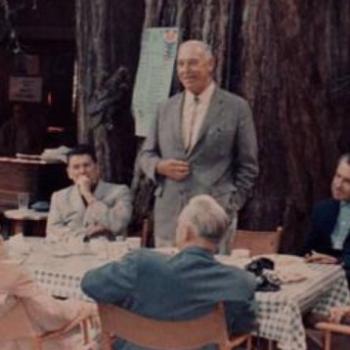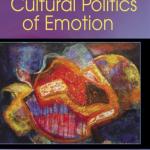Warren Throckmorton shares a bit more from historian Thomas Kidd on “George Whitfield and Slavery.” Kidd helpfully confronts the seriousness and enormity of this grim reality:
The most challenging issue for a biographer of George Whitefield (as with Patrick Henry) is his identity as a slave owner. I admire Whitefield and Henry, as well as similar figures of their time such as Jonathan Edwards or George Washington, but their owning people as slaves remains an unavoidable moral problem.
How does one admire a historical figure who kept slaves? How does an author fully convey his disapproval of American slavery, while not condemning an individual altogether?
That last question leads Kidd astray. In typical Southern Baptist fashion, it elevates the maintenance of a proper “stance” on a moral question above the importance of the moral question itself. That puts the focus on the author and “his disapproval” rather than on the evil being disapproved. And that, in turn, unhelpfully elevates the matter of guilt over the matter of responsibility.
That spins Kidd away from the substance of the question he began discussing and into an unfortunate appeal to Hegel’s Bluff:
I am not sure that I have gotten the balance exactly right, but we want to avoid two extremes.
One extreme might suggest that Whitefield was a great man of God, and that harping on his owning of slaves denigrates his memory as a Christian hero.
The other extreme might say that whatever Whitefield accomplished for God was fatally tainted by his owning slaves, so he is better forgotten or just used as a cautionary tale.
Yes, it would be foolishly extreme to think that the only possible approach here would be to either ignore Whitefield’s defense of slavery or to ignore Whitefield. We certainly should avoid the foolishness of self-serving NABA NABA-ism (“I don’t own slaves so therefore I am Not As Bad As Thomas Jefferson and so therefore I must be good”). And Kidd, to his credit, also seeks to avoid the dismissive, compartmentalizing approach that overlooks grave evil so as not to tarnish Whitefield’s “memory as a Christian hero.”
Kidd’s proposed “middle way” is, indeed, preferable to either such form of willful ignorance. But it’s also utterly beside the point:
I think the better approach is to humbly acknowledge that we all have moral blind spots. We can justify all manner of habits and practices that, in three centuries’ retrospect, may seem appalling. But this does not excuse Whitefield’s complicity in what was a fundamentally immoral system, from the terrible wars and slave catching trade in Africa, to the horrible passage of the forced Atlantic voyage, to the dreadful working conditions for slaves, to the physical and sexual abuse that many slaves endured in the Americas.
Jonathan Edwards seems an easier case to forgive, as he only kept a few household slaves and just occasionally spoke in public about the rectitude of slave owning. Whitefield, by contrast, was arguably the key figure in having slavery introduced in the colony of Georgia, where it was originally banned. I was dismayed to find archival evidence that Whitefield may have even allowed slaves to work at the property of his Bethesda before Georgia made slave owning legal.
And yet Whitefield was, in most other areas, a man of powerful passion and integrity, living a life of incredible significance and service to God. This is a good reminder that God uses deeply flawed people (one thinks of David, Peter, and Paul) in the work of His Kingdom.
The focus here is entirely on reputation. Kidd is concerned with how we ought to assess the reputation of theologians like Whitefield and Edwards, and thus also with how to maintain our own reputation in properly remembering them.
And thus Kidd winds up distracting himself from what began as a hard look at a crucially important question, ultimately settling on a flaccidly platitudinous moral to the story: “God uses deeply flawed people.”
Well, first of all, no duh. “Deeply flawed people” is redundant. (As Edwards himself taught. Thus, Calvinism.)

But more importantly, we see here how a focus on reputation — whether Whitefield’s or our own — leads inevitably to the very “extreme” that Kidd was hoping to avoid. It takes us back to merely shrugging off Whitefield’s defense of slavery as a mere “flaw” that ought not to distract us from admiring his “powerful passion and integrity” and his “incredible significance and service to God.”
Just look at the unintentional self-refuting absurdity of that sentence about how Whitefield had, “in most other areas … integrity.” That’s not what “integrity” means. So Whitefield was uniformly consistent in all areas except for in those in which he wasn’t? Thanks.
Whitefield’s slave-owning and his lobbying for the legalization of slavery in Georgia were, in fact, an integral part of his identity. They were an integral part of his theology — his piety, his revivalism, his hermeneutic, his doctrine.
And thus they have become an integral part of our theology, piety, revivalism, hermeneutic and doctrine. Whitefield’s theology shaped the American church. Whitefield’s theology was grossly and essentially misshapen by slavery.
American theology and the American church are grossly and essentially misshapen by slavery.
Still.
That’s hugely important. Who gives a withered fig about reputation? Whitefield’s reputation doesn’t matter. Our “stance” regarding Whitefield’s reputation doesn’t matter. Whether or not Whitefield and Edwards should be “forgiven” and whether or not we personally should “forgive” them is a sleight-of-hand distraction from what really matters here.
What matters is that the theology of Whitefield and Edwards is pervaded by toxic lies that rationalized injustice. We — that is, white evangelical Protestants here in America — are their theological heirs. Our theology is thus pervaded by toxic lies that rationalize injustice.
Our job is not to assess the reputations of our ancestors. Our job is to unlearn the lies we learned from them.
Our job is to test everything and to hold fast only to what is good.
















